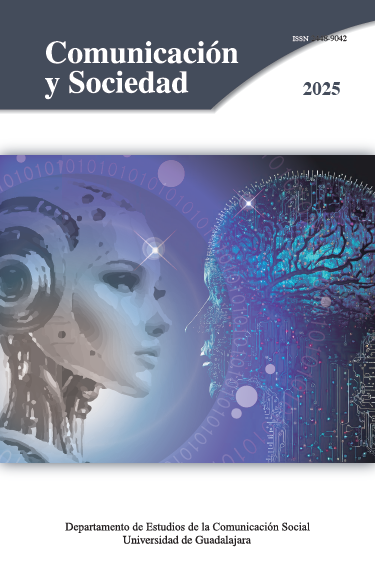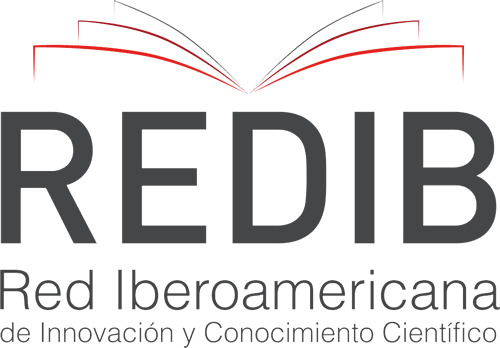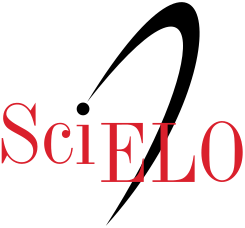Vigilando al vigilante: análisis de los sesgos ideológicos en los contenidos analizados por las agencias verificadoras de referencia en España y Portugal
DOI:
https://doi.org/10.32870/cys.v2025.8900Palabras clave:
Fact-checking, Sesgos, Ideología, España, PortugalResumen
Las agencias de verificación emergen como nuevos actores comunicativos contra una desinformación espoleada por la digitalización. El hecho de que repliquen procedimientos típicos de los medios en cuanto a selección de contenidos y lógica competitiva por la audiencia hace pertinente analizar si, como sucede con estos, existen sesgos que condicionen su labor. Se propone una triangulación metodológica de entrevistas en profundidad, aproximación cuantitativa descriptiva y análisis del contenido analizado por las cinco principales agencias de verificación de España y Portugal para confirmar la existencia de desequilibrios ideológicos de los contenidos desmentidos.Descargas
Citas
Allcott, H., & Gentzkow, M. (2017). Social media and fake news in the 2016 election. Journal of Economic Perspectives, 31(2), 211-236. https://doi.org/10.1257/jep.31.2.211
Alonso-López, N., Sidorenko-Bautista, P., & Giacomelli, F. (2021). Beyond challenges and viral dance moves: TikTok as a vehicle for disinformation and fact-checking in Spain, Portugal, Brazil, and the USA. Anàlisi: Quaderns de Comunicació i Cultura, 64, 65-84. https://doi.org/10.5565/rev/analisi.3411
Baldi, V., & Ballesteros-Aguayo, L. (2023, 14-46 de junio). Bulos, IA y fact-checking en Portugal y en España: alfabetización mediática como antídoto contra la posverdad. Congreso Internacional sobre Posverdad, Universidad de Granada, Granada, España. https://hdl.handle.net/10630/30770
Baptista, J.-P., Jerónimo, P., Piñeiro-Naval, V., & Gradim, A. (2022). Elections and factchecking in Portugal: the case of the 2019 and 2022 legislative elections. Profesional de la Información, 31(6), e310611. https://doi.org/10.3145/epi.2022.nov.11
Batista, F., Bueno, N. S., Nunes, F., & Pavão, N. (2022). Fake News, Fact Checking, and Partisanship: The Resilience of Rumors in the 2018 Brazilian Elections. The Journal of Politics, 84(4), 2188-2201. https://doi.org/10.1086/719419
Borges do Nascimento, I. J., Pizarro, A. B., Almeida, J. M., Azzopardi-Muscat, N., Gonçalves, M. A., Björklund, M., & Novillo-Ortiz, D. (2022). Infodemics and health misinformation: a systematic review of reviews. Bulletin of the World Health Organization, 100(9), 544-561. https://doi.org/10.2471/BLT.21.287654
Chan, M. S., Jones, C. R., Jamieson, K. H., & Albarracin, D. (2017). Debunking: A Meta-Analysis of the Psychological Efficacy of Messages Countering Misinformation. Psychological Science, 28(11), 1531-1546. https://doi.org/10.1177/0956797617714579
Chen, S., Xiao, L., & Kumar, A. (2023). Spread of misinformation on social media: What contributes to it and how to combat it. Computers in Human Behavior, 141, 107643. https://doi.org/10.1016/j.chb.2022.107643
Cornellà, A. (2000). Cómo sobrevivir a la infoxicación [Transcripción]. Conferencia del Acto de Entrega de Títulos de los Programas de Formación de Posgrado de la UOC. https://bit.ly/4eXWzo2
Ecker, U. K. H., Lewandowsky, S., Fenton, O., & Martin, K. (2014). Do people keep believing because they want to? Preexisting attitudes and the continued influence of misinformation. Memory & Cognition, 42, 292-304. https://doi.org/10.3758/s13421-013-0358-x
Ekström, M., Lewis, S. C., & Westlund, O. (2020). Epistemologies of digital journalism and the study of misinformation. New Media and Society, 22(2), 205-212. https://doi.org/10.1177/1461444819856914
Fridkin, K., Kenney, P. J., & Wintersieck, A. (2015). Liar, liar, pants on fire: How fact-checking influences citizens’ reactions to negative advertising. Political Communication, 32, 127-151. https://doi.org/10.1080.10584609.2014.914613
García-Marín, D., Rubio-Jordán, A. V., & Salvat-Martinrey, G. (2023). Chequeando al fact-checker: prácticas de verificación política y sesgos partidistas en Newtral (España). Revista de Comunicación, 22(2), 207-223. https://doi.org/10.26441/RC22.2-2023-3184
Guevara, G., Verdesoto, A., & Castro, N. (2020). Metodologías de investigación educativa (descriptivas, experimentales, participativas, y de investigación-acción). RECIMUNDO, 4(3), 163-173. https://doi.org/10.26820/recimundo/4.(3).julio.2020.163-173
Hameleers, M. (2023). The (Un)Intended Consequences of Emphasizing the Threats of Mis- and Disinformation. Media and Communication, 11(2), 5-14. https://doi.org/10.17645/mac.v11i2.6301
Kapantai, E., Christopoulou, A., Berberidis, C., & Peristeras, V. (2020). A systematic literature review on disinformation: Toward a unified taxonomical framework. New Media & Society, 23(5), 1301-1326. https://doi.org/10.1177/1461444820959296
Kappes, A., Harvey, A., Lohrenz, T., Montague, P. R., & Sharot, T. (2020). Confirmation bias in the utilization of others’ opinion strength. Nature Neuroscience, 23(11), 130-137. https://doi.org/10.1038/s41593-019-0549-2
Krippendorff, K. (2002). Metodología de análisis de contenido. Teoría y práctica. Paidós.
Jerónimo, J., & Sánchez, M. (2023). Jornalistas Locais e Fact-Checking: Um Estudo Exploratório em Portugal e Espanha. Comunicação e Sociedade, 44, 1-18. https://doi.org/10.17231/comsoc.44(2023).4553
Lanuez, M., & Fernández, E. (2014). Metodología de la Investigación Educativa. IPLAC.
Lowrey, W. (2017). The emergence and development of news fact-checking sites: Institutional logics and population ecology. Journalism Studies, 18(3), 376-394. https://doi.org/10.1080/1461670X.2015.1052537
Luengo, M., & García-Marín, D. (2020). The performance of truth: politicians, fact-checking journalism, and the struggle to tackle Covid-19 misinformation. American Journal of Cultural Sociology, 8(3), 405-427. https://doi.org/10.1057/s41290-020-00115-w
Marietta, M., Barker, D. C., & Bowser, T. (2015). Fact-checking polarized politics: Does the fact-check industry provide consistent guidance on disputed realities? The Forum, 13(4), 577-596. https://doi.org/10.1515/for-2015-0040
Muddiman, A., & Scacco, J. M. (2023). The Influence of Conflict News on Audience Digital Engagement. Journalism Studies, 25(3), 278-298. https://doi.org/10.1080/1461670X.2023.2296028
Navarro-Sierra, N., Magro-Vela, S., & Vinader-Segura, R. (2024). Research on Disinformation in Academic Studies: Perspectives through a Bibliometric Analysis. Publications, 12(2), 14. https://doi.org/10.3390/publications12020014
Paniagua, F., Seoane, F., & Magallón-Rosa, R. (2020). Anatomía del bulo electoral: la desinformación política durante la campaña del 28-A en España. Revista CIDOB d’Afers Internacionals, 124, 123-145. https:doi.org/10.24241/rcai.2020.124.1.123
Reuters Institute. (2024). Digital News Report 2024. https://bit.ly/3RYGQvs
Rodrigo-Ginés, F. J., Carrillo-de-Albornoz, J., & Plaza, L. (2024). A systematic review on media bias detection: What is media bias, how it is expressed, and how to detect it. Expert Systems with Applications, 237(C), 121641. https://doi.org/10.1016/j.eswa.2023.121641
Roniger, L., & Senkman, L. (2019). Senses of Self: Approaches to Pre-Reflective Consciousness. ProtoSociology, 36, 542-569.
Rosen, J. (2012). The People Formerly Known as the Audience. En M. Mandiberg (Ed.), The Social Media Reader (pp. 13-16). New York University Press.
Salaverría, R., Buslón, N., López-Pan, F., León, B., López-Goñi, I., & Erviti, M. C. (2020). Desinformación en tiempos de pandemia: tipología de los bulos sobre la Covid-19. Profesional de la Información, 29(3), e290315. https://doi.org/10.3145/epi.2020.may.15
Singer, J. B. (2018). Fact-checkers as entrepreneurs: Scalability and sustainability for a new form of watchdog journalism. Journalism Practice, 12(8), 1070-1080. https://doi.org/10.1080/17512786.2018.1493946
Van Dijk, J. A. G. M. (2017). Digital divide: Impact of access. The international encyclopedia of media effects, 1, 1-11, https://doi.org/10.1002/9781118783764.wbieme0043
Vraga, E., & Bode, L. (2020). Correction as a solution for health misinformation on social media. American Journal of Public Health, 110(3), S278-S280. https://doi.org/10.2105/AJPH.2020.305916
Wardle, C., & Derakhshan, H. (2017). Information disorder. Toward an interdisciplinary framework for research and policy making [Council of Europe report DGI (2017)09]. https://bit.ly/3SpxuZN
Descargas
Publicado
Cómo citar
Número
Sección
Licencia

Esta obra está bajo una licencia internacional Creative Commons Atribución-NoComercial 4.0.
Los autores/as que publiquen en esta revista aceptan las siguientes condiciones:
De acuerdo con la legislación de derechos de autor, los autores conservan los derechos de autoría y otorgan a Comunicación y Sociedad el derecho de primera comunicación pública de la obra. Comunicación y Sociedad no realiza cargos a los autores por enviar y procesar artículos para su publicación.
Los autores/as pueden realizar otros acuerdos contractuales independientes y adicionales para la distribución no exclusiva de la versión del artículo publicado en Comunicación y Sociedad (por ejemplo incluirlo en un repositorio institucional o publicarlo en un libro) siempre que indiquen claramente que el trabajo se publicó por primera vez en Comunicación y Sociedad.











